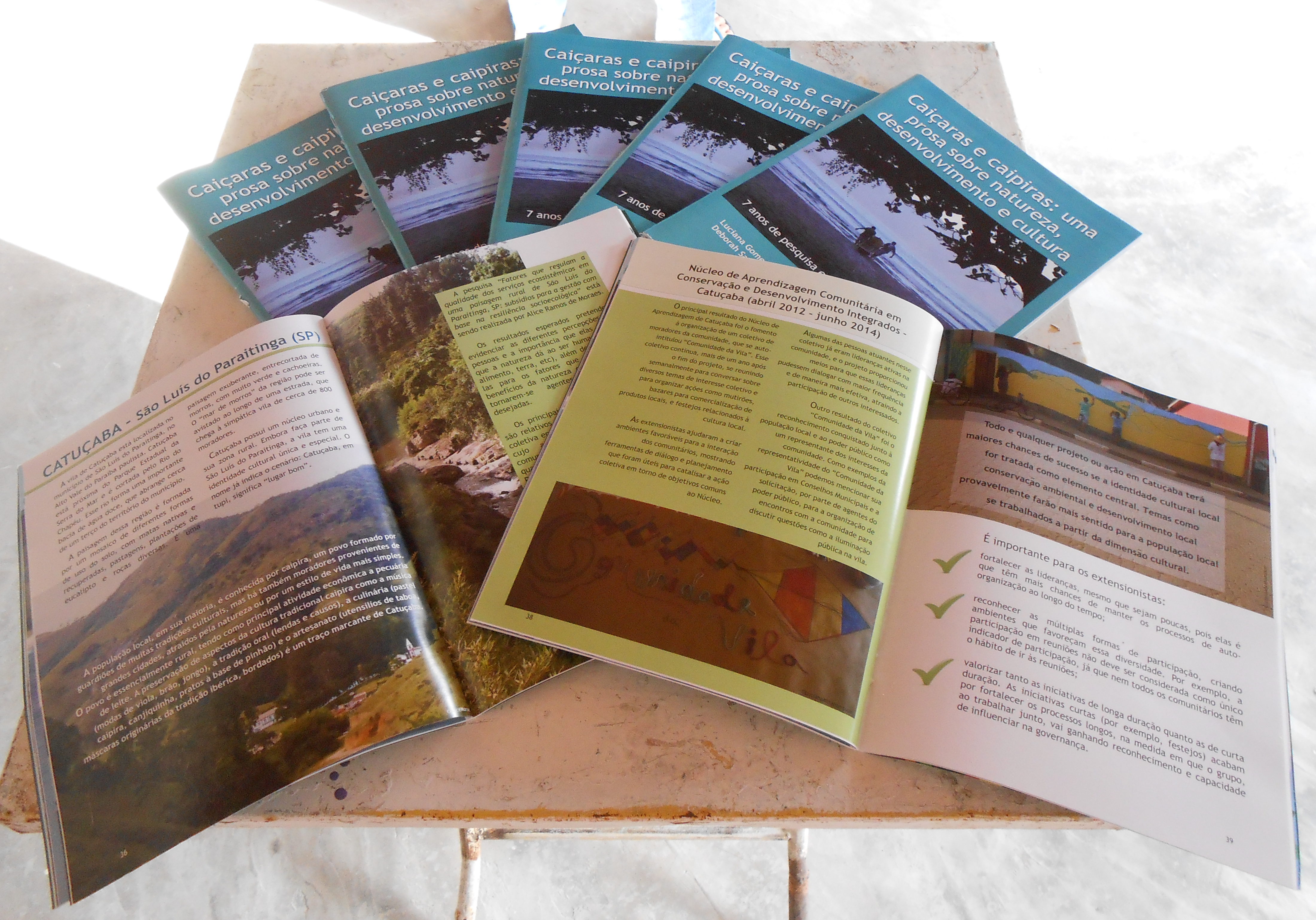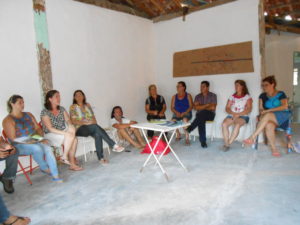
15 Feb Development, nature and culture: a community discussion
On January 28, 2017, members of the CCRN Brazilian team (Cristiana Seixas, Alice Moraes, Camila Islas and Juliana Farinaci) invited the Catuçaba community to the event “Caipira meeting: a talk about local development, nature and culture”. Catuçaba is a rural district of São Luís do Paraitinga municipality, São Paulo state, Brazil. Co-organised by CCRN researchers and local community members this meeting had two main goals:
- Foster individual and collective reflections regarding the outreach project developed between 2012 and 2014 about learning communities and collective action
- Share copies of the workbook produced as a result of research and outreach projects developed by CGCommons
Back in 2012, CGCommons proposed two learning communities: one in Catuçaba and another in Trindade, a district of Paraty municipality, Rio de Janeiro state. The main goal of the outreach project was to promote an environment of reflecting about nature conservation and local development, and planning collective actions. Each learning community was facilitated by a group of graduate students and researchers and had its own agenda. The communities began meeting twice a month and then the schedule was gradually adapted to fit each community. Eventually the group in Trindade focused on informing and discussing relevant matters through a community newspaper named “O Trindadeiro”. The participants collected all the money needed to print two editions (500 copies each). The group in Catuçaba focused on organizing several cultural events and community actions towards environment and culture over the three years of work.

Participants at the Caipira meeting.
Around 20 people attended the Caipira meeting, which was divided into three components: 1) project presentation, 2) project outcomes and 3) next steps. First, the facilitators presented on the project and its purpose. Then, the participants shared their opinions about their involvement as part of the learning community and the main outcomes of the project. Participants mentioned that the learning community strengthened local initiatives, as different people, all willing to do something for the community, had the chance to get closer and share ideas. Participants also felt that the technical support of specialists (such as biologists), valuing local people, and valuing local knowledge were critical to empowering the community. Another major result mentioned was the spillover effect of the learning community.


